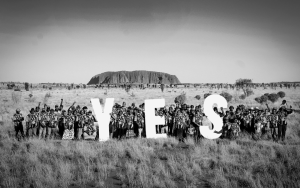Peter Winch on political legitimacy
This is a guest post by Lynette Reid, editor of Political Authority: Contract and Critique
I was a student (along with Olli Lagerspetz and others) of the British philosopher Peter Winch (1926–1997) in the last years of his life – the 1990s in Illinois. This was an era when American universities benefited from the hostility Margaret Thatcher showed the humanities by offering British philosophers more congenial surroundings.
Winch was best known for his 1958 work challenging positivist conceptions of the social sciences (The Idea of a Social Science, reissued 2001) and for the way he drew on the philosophy of Wittgenstein. He struck me as a philosopher who never simply ‘applied’ a given lens or approach to a problem in philosophy. I’ve heard this thought echoed by others who continue (or who study) the Swansea School of philosophers deeply influenced by Rush Rhees, as Winch was.
I was an eager student of Winch’s lectures and seminars in political philosophy. There was a natural flow of topics between his teaching on logic, on ethics, on philosophy of law and the state, on Plato, and on political authority. He was considering the idea of writing a book on political philosophy, and in the last few years of his life, he was starting on this project.
There is a short path from Winch’s critique of positivism in the social sciences to a critique of legal positivism, and Winch gestured down that path in his lectures on philosophy of law and the state. The question of the difference between the exercise of raw power and the exercise of political authority was certainly a central question for him, and he was a critic of Hobbes’s scientism and his materialist philosophy of mind.
Just as Winch never simply applied Wittgenstein to a problem, he did not simply apply the insights of the Idea of a Social Science to political theory. The argument of the Idea of a Social Science turns on the importance of agents’ own understanding to the explanation of social life and the distortions introduced into our understanding of social life when the social sciences search for causal processes on the model of the natural sciences. In political theory, he was troubled by issues that went deeper than scientism.
The key issue for Winch in political authority was the question of the intelligibility of free and rational agents acting in obedience to the state. If rational agency is acting for one’s own reasons in accordance with one’s own view of a situation, how is it ever possible to act in obedience to the state? Unless, like Hobbes’s Leviathan, the state ensures it’s ‘in your interests’. But then your obedience is no different than compliance with the demands of a thief who holds a gun to your head. Defining away the problem by excluding the inconvenient fact that it may be in some individuals’ interests to seek to dominate in a war of all against all, or that unjust regimes can guarantee ‘peace’, as many forms of contract theory do, was also a non-starter.
Shortly before he died, Winch reached what the key insight he had been searching for, and he was ready to write the book on political theory he had long planned: If reason is supposed to be the arbiter of the authority of the state, what is the authority of reason?
This provocative question promises to undercut another posthumously published contribution from Winch’s generation that has had a profound influence on discussions of political philosophy in the 21st: Bernard Williams’s ‘basic legitimation demand’ – that legitimate political authority be justifiable to each and every person over whom it extends.
This question wasn’t just a tu quoque for Winch. It was the starting point for discussions of the nature of logic, Socrates and the sophists, and the relationship between justice and force.
Questions about political legitimacy have a new urgency. A growing number of governments maintain the form of democracy while otherwise exercising authoritarian power. We might ask what it is about democracy that supports (when it does) a state’s claim to legitimate authority. Social institutions committed to truth – science, the media, the universities – are under political attack as ipso facto biased. Is there a relationship between accepting the discipline (as it were) of truth and accepting the discipline of the state?
Winch’s last years encompassed the fall of the Berlin Wall. He engaged with Havel’s thinking about the fragility of Eastern bloc authoritarianism. Those years also encompassed the early political stirrings of American fundamentalism, which had seemed a purely religious phenomenon. When Pat Buchanan declared the culture war at the 1992 Republican National Convention, people across the political spectrum had a sense that something dangerous was being unleashed.
I recall that Winch’s exposure to fundamentalism led him to re-think the ways he had defended Christianity from scientific critique (see his paper ‘Darwin, Genesis and Contradiction’). While he did not identify as a man of religious faith, philosophy of religion and moral philosophy that drew on Christian parables were a substantial portion of his work. He came to think that there was a sense in which some forms of religion could legitimately be judged and found wanting from a scientific perspective (without ‘mixing language games’). While he continued to hold that there was no straightforward factual disagreement between science and religion (e.g., about the age of the earth), there could be a difference in attitude to the truth and in practices of reason. Reading Primo Levi on science and its ideals of truth as a bulwark against fascism contributed to his thinking on this.
In Political Authority: Contract and Critique, Michael Campbell and I have selected lectures and papers from the Peter Winch Archives at Kings College London and pieced together – as far as possible – Winch’s projected book according to an outline he left. Those who care about fundamental issues at the intersection of morality, politics and agency, and about the relationship between political and epistemic authority, will find in these papers a fresh perspective about key conflicts in contemporary political life.
Latest Posts

Voice, Democracy and the Future of Reform
This is a guest post by Gabrielle Appleby and Megan Davis, authors of The Failure of the Voice Referendum and the Future of Australian Democracy Don’t be fooled by...

Talk of the Town: Monthly Publishing Industry News Digest
Global publishing and research continue to shift under the pressures of technological change, policy reform and international collaboration. From market insights at major book fairs to debates around open access,...

Featured Monthly Releases – January 2026
January opens the year with a sense of renewal and momentum, setting the tone for the months ahead. Discover our featured releases for this month. The Failure of the Voice...

When the Mirror Lies: A Female Bodybuilder’s Battle with Fitness Tech and Body Dysmorphia
This is a guest post by Asegul Hulus, author of Beyond the Metrics: The Psychological Impact of Fitness Technology on Self-Image and Social Anxiety Six months have passed since I...

